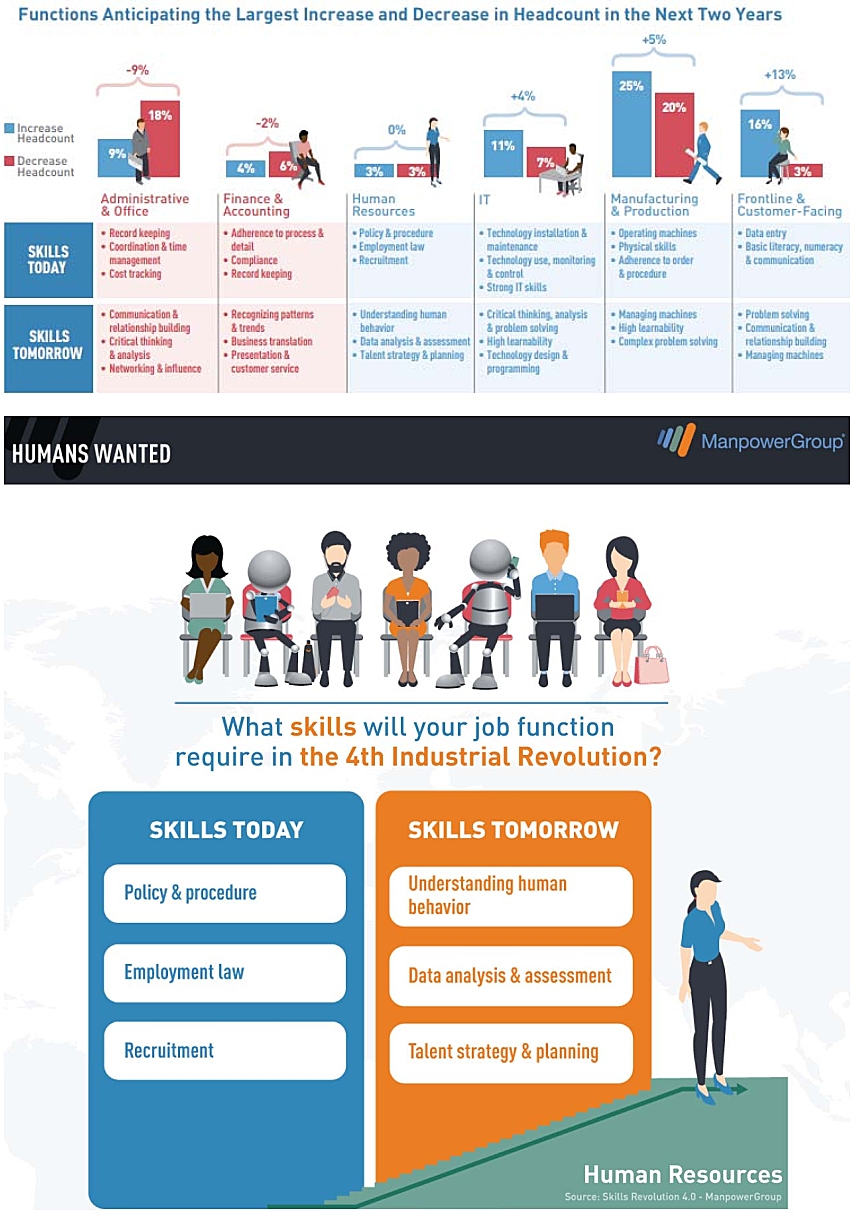Nurturing the required skills for the workforce
 |
| Simon Matthews, country manager of ManpowerGroup Vietnam, Thailand, and the Middle East |
With some 57.5 million people in the workforce, Vietnam however still faces a serious shortage of talent. According to ManpowerGroup’s Vietnam Total Workforce Index for 2018, the country’s highly-skilled workforce makes up only 11 per cent of the total, while non-skilled workers account for 40 per cent and medium-skilled up to 49 per cent. All around the world, talent shortage is currently a critical problem. One important reason for this is candidates that lack both necessary technical and soft skills. Notably, the in-demand skills required by employers today are very different from those in the past, while new skills are appearing as quickly as old ones disappear. That’s why people need to be upskilled or reskilled and are required to adapt to the skills revolution.
Being employable today no longer depends on what you know, but rather what you are willing to learn. As long as people have learnability, which is the desire and ability to quickly acquire knowledge and adapt one’s skill-sets to remain employable throughout their working life, they will be ready to meet the development demands in the digital age. The Vietnamese workforce is not the exception. By 2022, around 54 per cent of all employees will require significant reskilling and upskilling. Of these, about 35 per cent are expected to require training of up to six months, 9 per cent will take up to a year, and 10 per cent will require additional skills training of more than a year. To win in this revolution, companies need to promote a culture of learning, provide career guidance, and offer focussed upskilling opportunities.
Labour recruitment trend
The ManpowerGroup Skills Revolution 4.0 research, which covered 19,000 employers across 44 countries, said that the demand for tech and digital skills is growing across all functions, yet employers place increasing value on human skills as automation scales and machines prove better at routine tasks. Human or soft skills such as communication, complex problem solving, and analytical thinking really matter in the digital age: they are hard to find and even harder to teach. While 38 per cent of organisations said it is difficult to train in-demand technical skills, 43 per cent said it is even harder to teach the soft skills they need. With abundant yet medium-skilled or under-skilled workforce, employers in Vietnam should apply suitable talent strategies. An effective talent strategy we would recommend to clients is based on the four B’s. These four categories include Build (invest in learning and development), Buy (go to market to attract the talent that cannot be built in-house), Borrow (cultivate communities of talent beyond the organisation), and Bridge (help people to move on or up to new roles inside or outside the organisation).
Due to the serious talent shortage worldwide, to improve the quality of human capital of organisations, most employers are planning to build talent within their organisations. As such, companies are no longer consumers of work, instead they are becoming builders of talent.
One interesting finding from Skills Revolution 4.0 said that only 32 per cent of organisations will use contractors and other forms of alternative work models even though 87 per cent of workers said they are open to this next-generation work. Therefore, human capital should be optimised and put in the right place, depending on the demographics of a country.
 |
Impact from free trade agreements
Under the EU-Vietnam Free Trade Agreement (FTA) and the Comprehensive and Progressive Agreement for Trans-Pacific Partnership, the workforce mobility among countries will become easier, creating competition between the Vietnamese and foreign workforce. However, this can become a significant drive for the Vietnamese workforce to upskill themselves to win the competition.
These agreements will open the doors for products and services of member countries to enter the Vietnamese market, meaning that businesses and labourers here will have to face stiffening competition in their home market. The challenge is not automation or robots now for Vietnam, but the competition with the workforce from neighbouring countries.
Despite the abundant workforce, the quality of Vietnamese manpower remains a matter of special concern. The country’s labour productivity stands at $4,019, only a third of Thailand’s at $11,633. English proficiency is another concern as only 5 per cent of the total workforce is proficient in the English language.
Vietnamese workers need to learn to adapt to the future of work. With the opportunities to level up in skills becoming a trend among companies, the local workforce will have chances to improve their performance and quality. As such, I believe these FTAs will bring about positive impacts.
In order to benefit from the huge opportunities arising from these agreements, Vietnamese businesses should invest in a long-term human resources development strategy to equip workers with the necessary skills to increase their productivity and competitiveness in the context of global integration. The good news is that up to 84 per cent of organisations globally plan to upskill their workforce by next year.
What the stars mean:
★ Poor ★ ★ Promising ★★★ Good ★★★★ Very good ★★★★★ Exceptional
 Tag:
Tag:
Themes: Unleashing The Private Sector
Related Contents
Latest News
More News
- Citi economists project robust Vietnam economic growth in 2026 (February 14, 2026 | 18:00)
- Sustaining high growth must be balanced in stable manner (February 14, 2026 | 09:00)
- From 5G to 6G: how AI is shaping Vietnam’s path to digital leadership (February 13, 2026 | 10:59)
- Cooperation must align with Vietnam’s long-term ambitions (February 13, 2026 | 09:00)
- Need-to-know aspects ahead of AI law (February 13, 2026 | 08:00)
- Legalities to early operations for Vietnam’s IFC (February 11, 2026 | 12:17)
- Foreign-language trademarks gain traction in Vietnam (February 06, 2026 | 09:26)
- Offshore structuring and the Singapore holding route (February 02, 2026 | 10:39)
- Vietnam enters new development era: Russian scholar (January 25, 2026 | 10:08)
- 14th National Party Congress marks new era, expands Vietnam’s global role: Australian scholar (January 25, 2026 | 09:54)





















 Mobile Version
Mobile Version